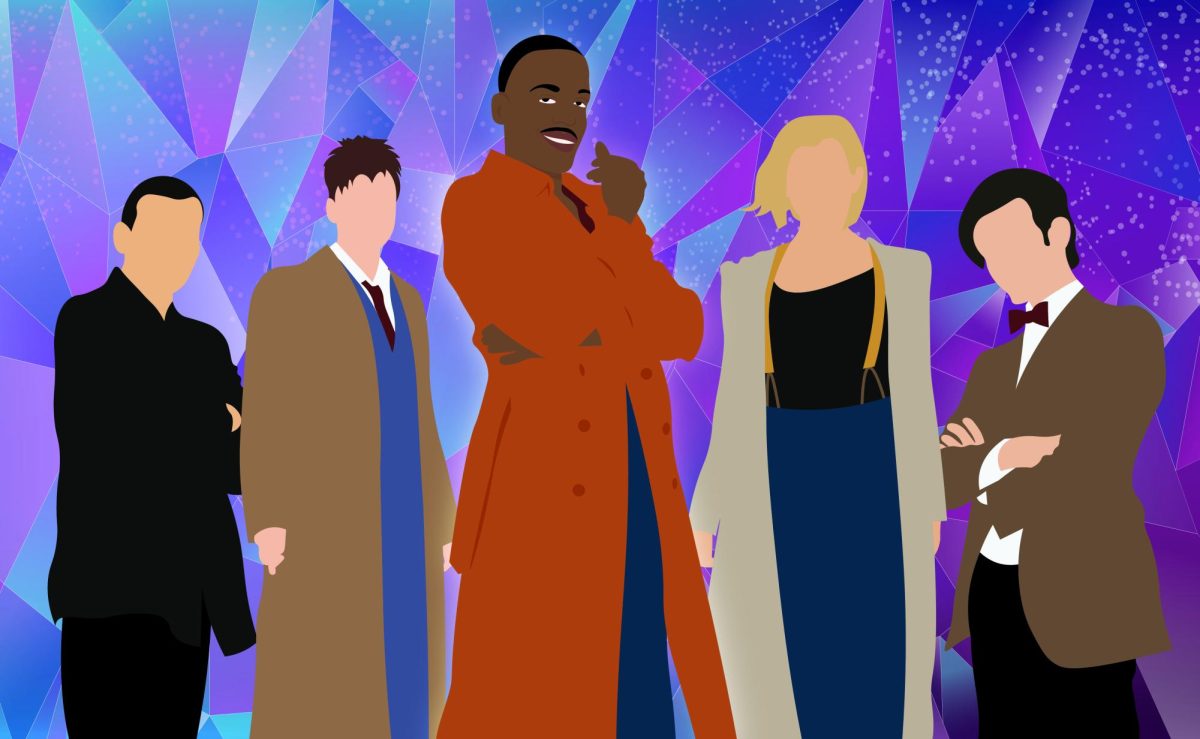The Kent Stater hopes to encourage lively debate about today’s issues in our Opinion section. To submit an opinion piece for potential publication, email your article to [email protected].
The incredibly popular BBC original sci-fi series “Doctor Who” has been on the air for a total of 61 years. The original series ran from 1963 to 1989, until its revival in 2005, and is still getting new episodes to this day.
From the beginning of its run until 2017, each variation of the regenerating doctor had been white men. That was until Jodie Whittaker took up the mantle as the Thirteenth Doctor during the series’ 2017 Christmas special.
Whittaker made history as the first ever female doctor in the series. She continued to play the role until 2022, where she first regenerated into David Tennant’s Fourteenth Doctor in that year’s Christmas special, for nostalgia’s sake, as he had already portrayed the doctor years prior. It wasn’t until the end of the special that audiences got their first look at the BBC’s newest history making decision, a doctor being played by a Black, queer actor.
In May 2022, it was announced online that Rwandan-Scottish actor Ncuti Gatwa (N-shoo-tee GAT-wah) would be Whittaker’s successor. Gatwa, whose career took off after their time working on Netflix’s “Sex Education,” is the first openly Black, queer actor to play the doctor.
The announcement, unfortunately, came with some very harsh criticisms, with some even going as far as to say that the casting was “controversial.” Many viewers had similar things to say about Whittaker’s casting. The backlash was worse for Gatwa’s casting, however, since this was the first time that one of the most popular British television shows of all time had changed their formula so drastically in its entire 61 years.
Gatwa and their co-star, Neil Patrick Harris, have since confirmed that Gatwa’s iteration will also portray the first openly gay doctor. Gatwa says that the Fifteenth Doctor will be “loud and proud” about his queerness, with the producers even including a scene where he describes a “hot summer” with Harry Houdini.
Another openly gay actor, Jonathan Groff is set to make an appearance in the upcoming season, which releases on April 12. As well as an appearance from transgender actress Yasmin Finney during the three-part 60th anniversary special.
Gatwa has also said that his version of the doctor will be “beautifully Black.” Gatwa’s doctor will rock an afro and pinstripe suit in a future episode, alluding that Gatwa’s doctor will be wonderful representation for Black viewers. This is especially important considering that all the doctors before Gatwa have been white, leaving audiences to become comfortable with having only white leads.
Gatwa’s casting marks a bold and necessary step forward for “Doctor Who,” pushing the series into a new era that reflects the diversity of its global audience. After more than six decades of white, male leads, the show is finally embracing stories and identities that have long been overlooked in mainstream science fiction.
With Gatwa at the helm, “Doctor Who” is not just making history, it’s redefining what the future of the Doctor can look like: vibrant, inclusive and unapologetically authentic. As their spaceship, TARDIS, travels through all of time and space, it’s clear that the next great adventure is one of representation, visibility and joy.
Nicholas Keller is a columnist. Contact him at [email protected].



